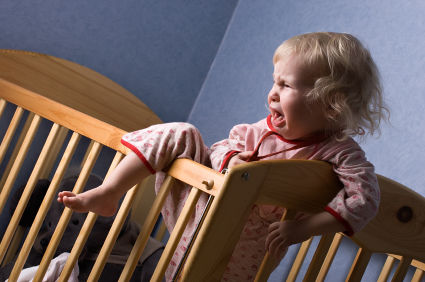Sleep Problems in Children
Some children, who have had sleep problems as a baby, experience the same difficulties later.

The researchers from the University of Chicago asked 359 mothers to fill out a questionnaire in order to find out whether their kids of nursery school age had sleep problems. It was found that 10% of children, who had had these difficulties in infancy, did not get rid of them ever since.
The symptoms of poor sleep can be characterized by snoring, the syndrome of “restless legs”, the difficulty in falling asleep (more than 15-20 minutes), nightmares, insomnia, and night terrors.
It is needless to say, that restless sleep affects the child’s daily activities in a negative way. Sleep is an important part of development. The development of cognitive skills and the ability to think, learn and analyze also depend on whether the child gets enough sleep, especially at the age from 1 to 3 years.
Not all parents pay attention to the child’s snoring. Such a situation is normal if the baby has a cold, but there should be no snoring in the baby’s usual state. Snoring during sleep is a clear message that the child may be prone to sleep apnea and various breath problems during sleep. If the disease develops and is not treated, the consequences can be very unpleasant: an increased risk of hypertension, heart disease, obesity and diabetes.
If you notice that your child has sleep problems, try to stick to the regime, walk in the fresh air more often, offer your child to play active outdoor games, and provide him or her with a healthy diet. If you cannot get rid of the problem in such a way, go to the doctor immediately, especially in the case of sleep apnea.
